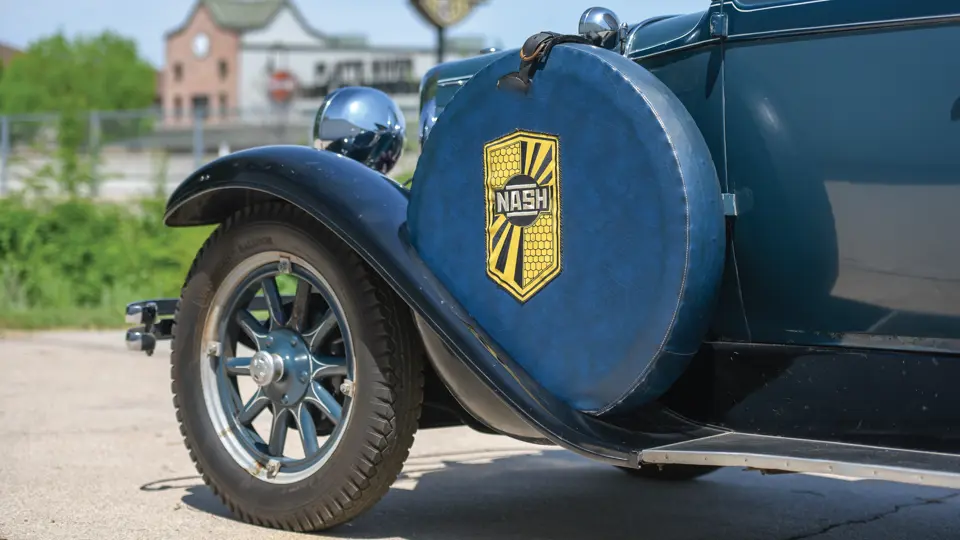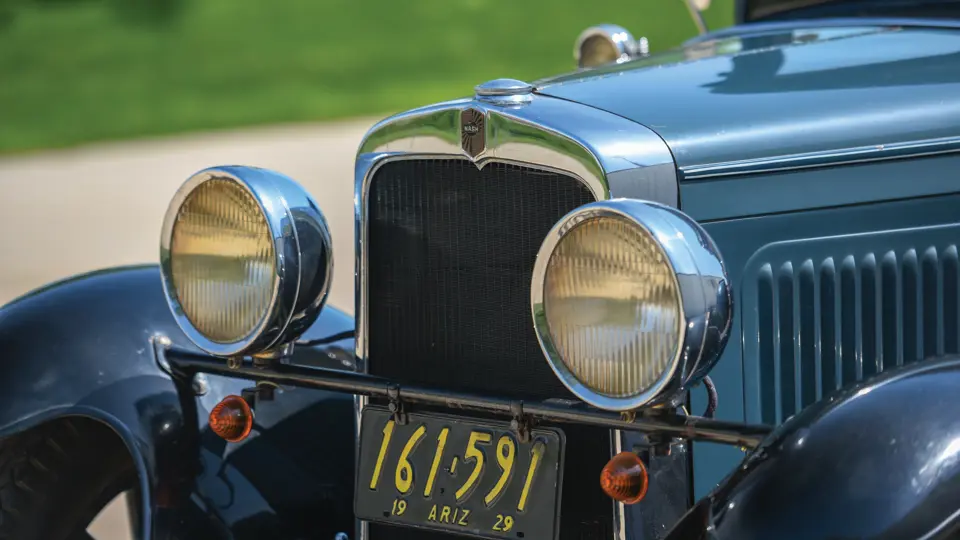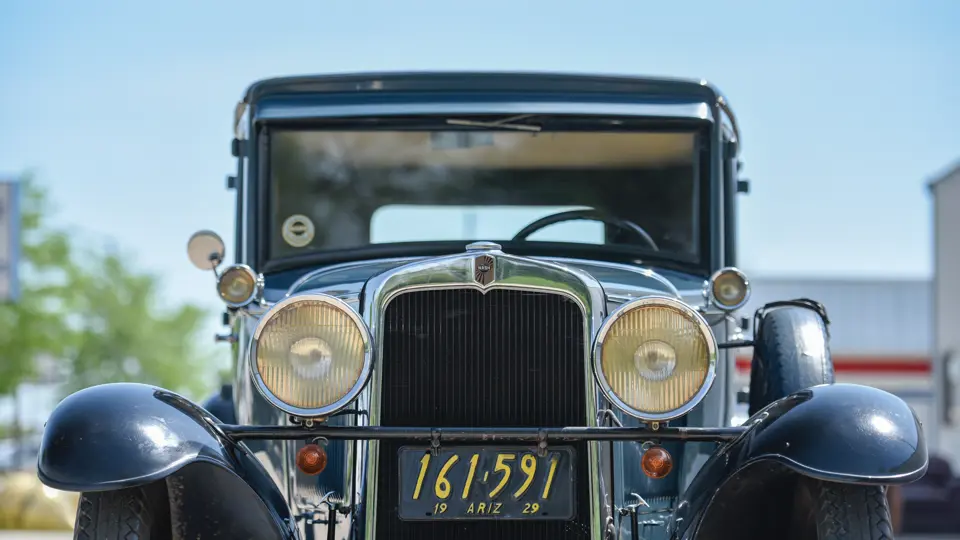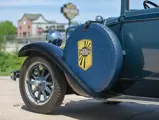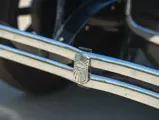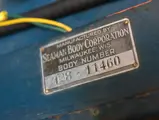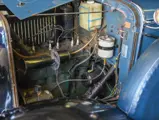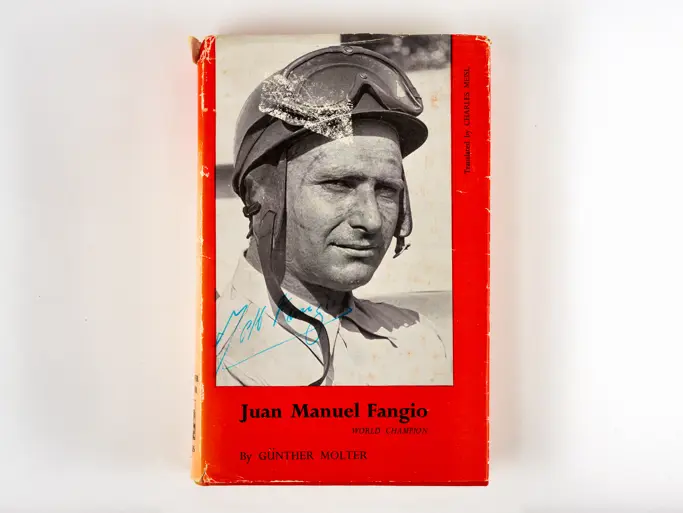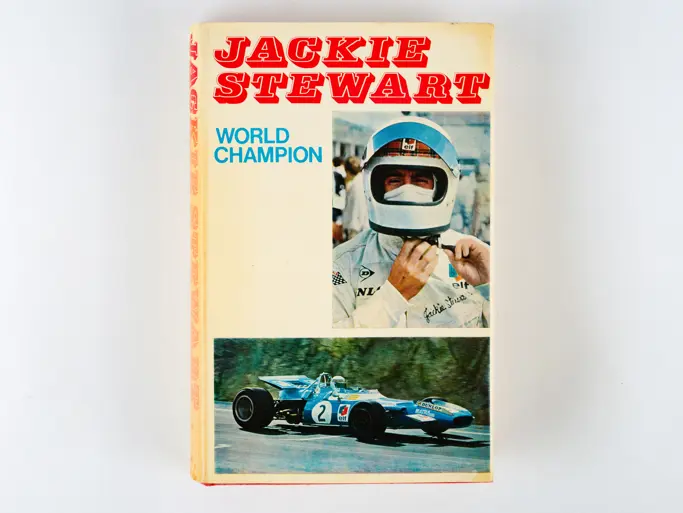The Standard Six was Nash’s entry-level series in the late 1920s. Similar in appearance to the Special and Advanced Sixes, it had a shorter wheelbase and a smaller engine, an L-head as opposed to the larger cars’ overhead valves. Interestingly, it had a unique body style, the five-passenger Style 428 landau sedan, with formal rear quarters accenting large quarter windows with long, curved, decorative landau irons. Priced at just $995, it sold for several hundred less than plainer bodies from the more upscale lines.
The Merrick Auto Museum acquired this Standard Six landau sedan in 1999 from Arizona resident Mark Accomozzo. Dark blue with black fenders, it has white pinstriping and a black padded fabric-covered top. Body-color wood-spoke artillery wheels have demountable rims mounted with blackwall tires. The spare tire is in the left front fender, leaving room for a large trunk at the rear. Upholstered in pleated brown mohair, it has a rear-seat blanket rail and foot bar.
The engine is a 184-cubic-inch, 50 bhp unit. The transmission is of three-speed sliding-gear design. The engine compartment is generally clean and serviceable, although it could benefit from further detailing. Fuel supply is via a large vacuum tank mounted on the firewall. Accessory directional signals have been unobtrusively installed for safety in modern traffic. A modern temperature gauge has also been installed on the lower edge of the instrument panel.
Nash bodies in this period were supplied by Seaman Body Corporation of Milwaukee, Wisconsin, in which Nash had acquired a half interest. Their location, near Nash’s Kenosha factories, was a big factor in the relationship. Although a volume producer, Seaman also produced bespoke bodies for the likes of Locomobile, Lozier, and Packard, resulting in high-quality bodies for Nash.


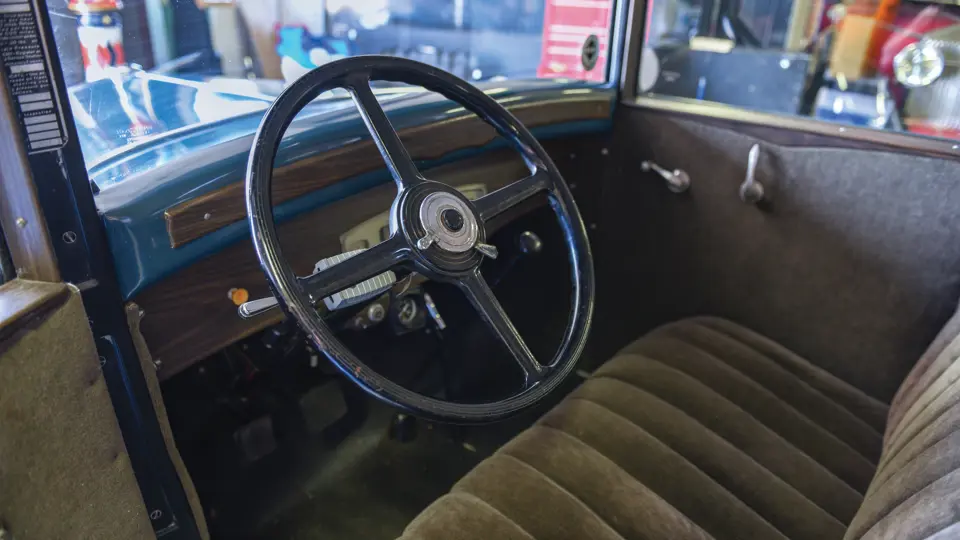

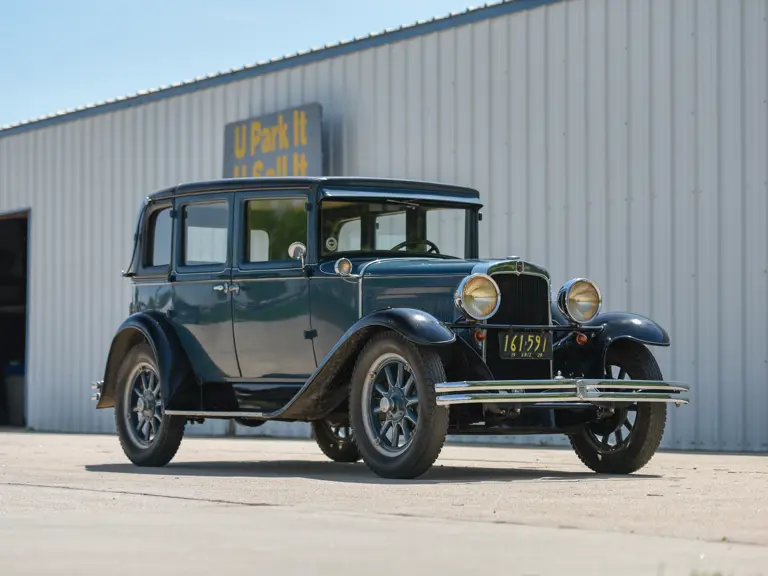
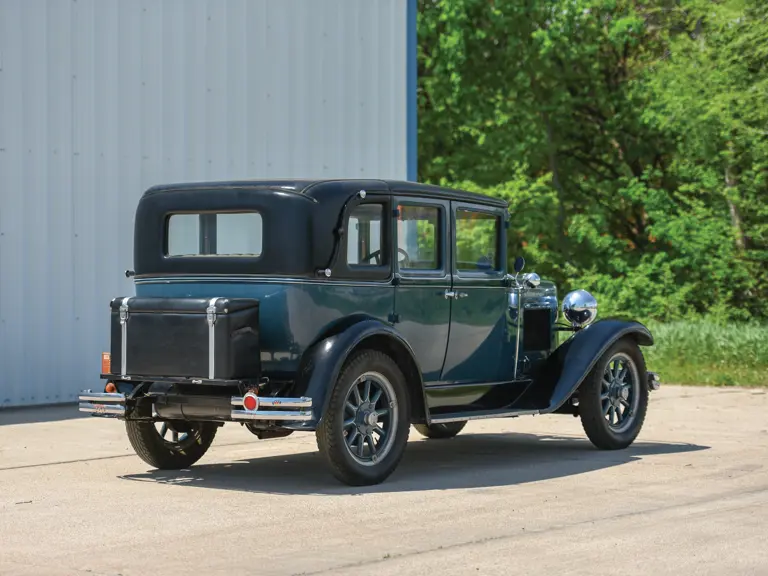
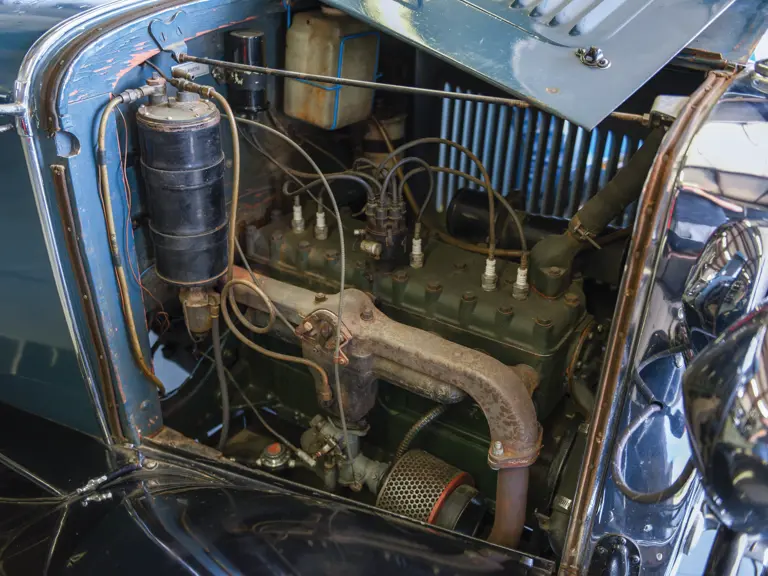
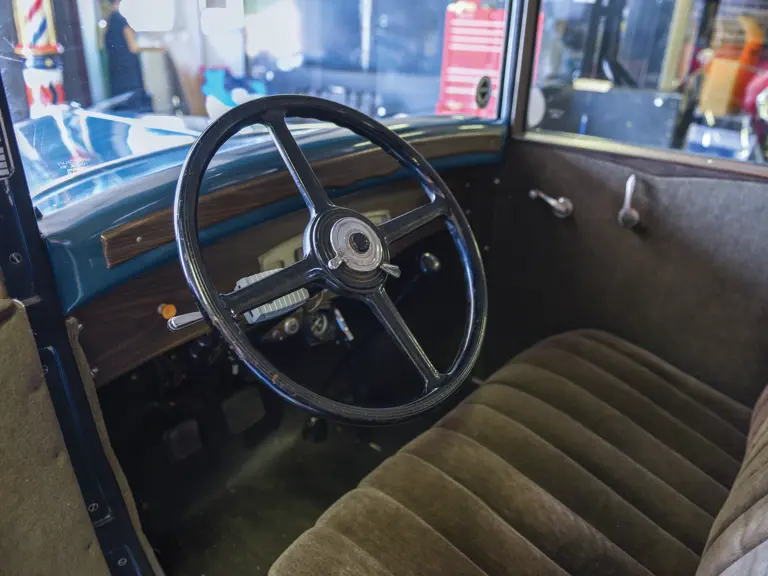
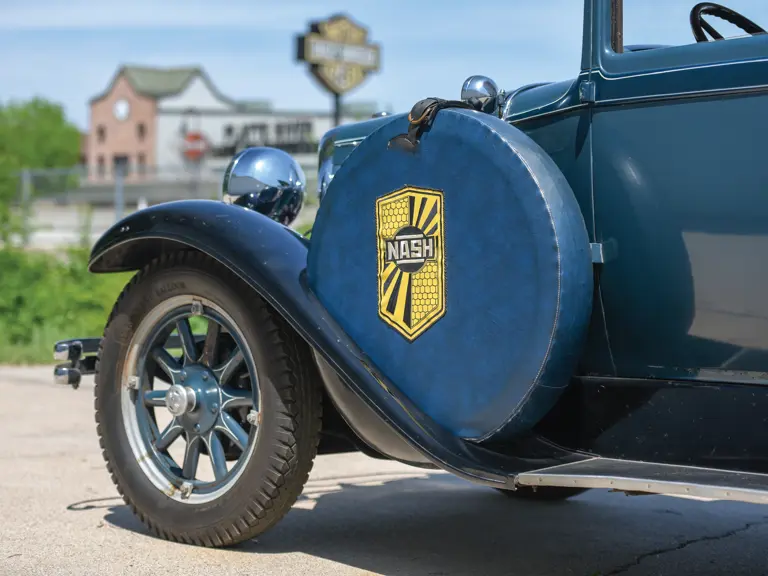
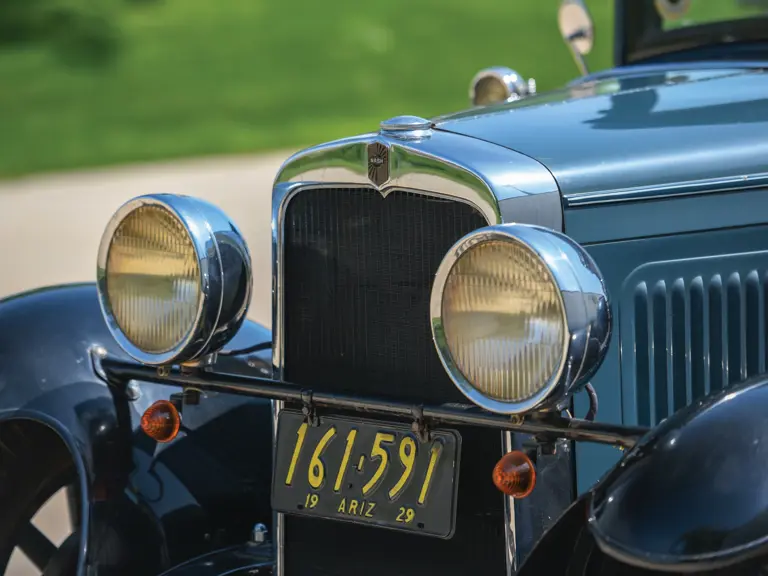
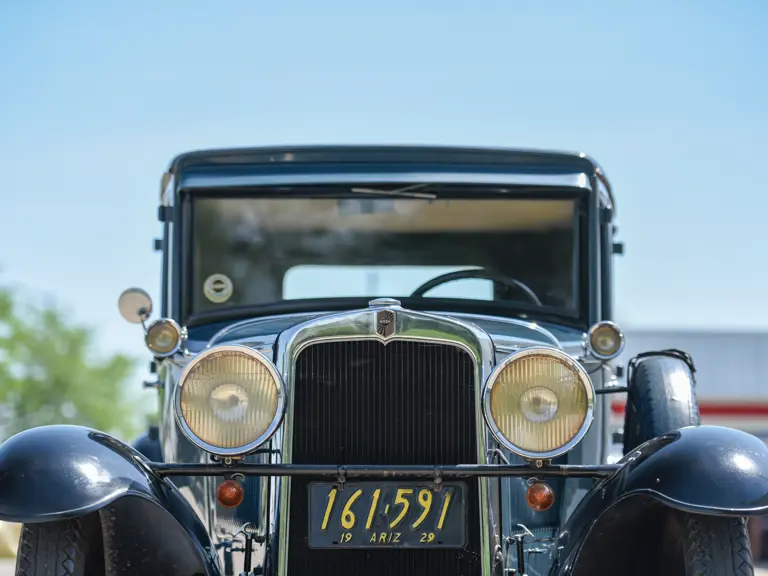
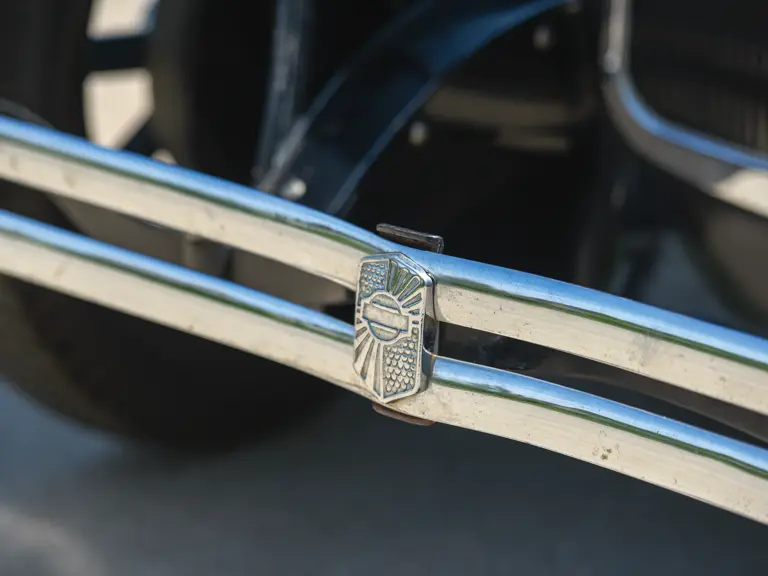
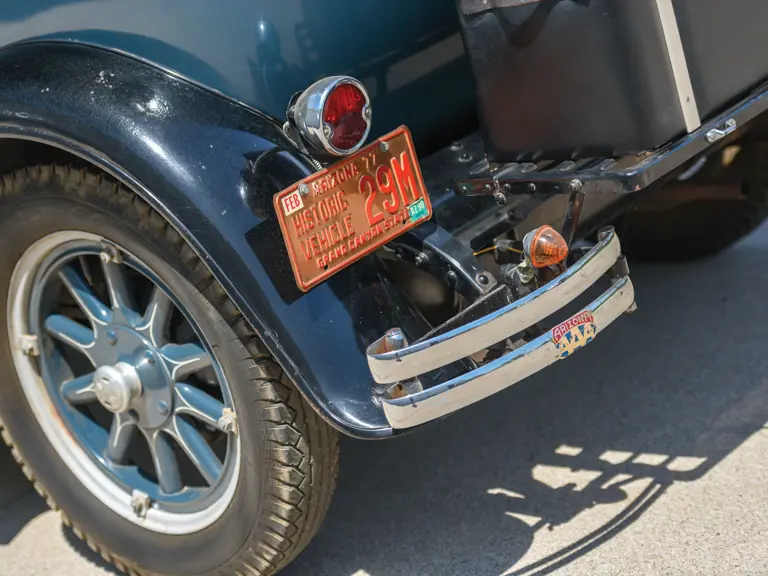
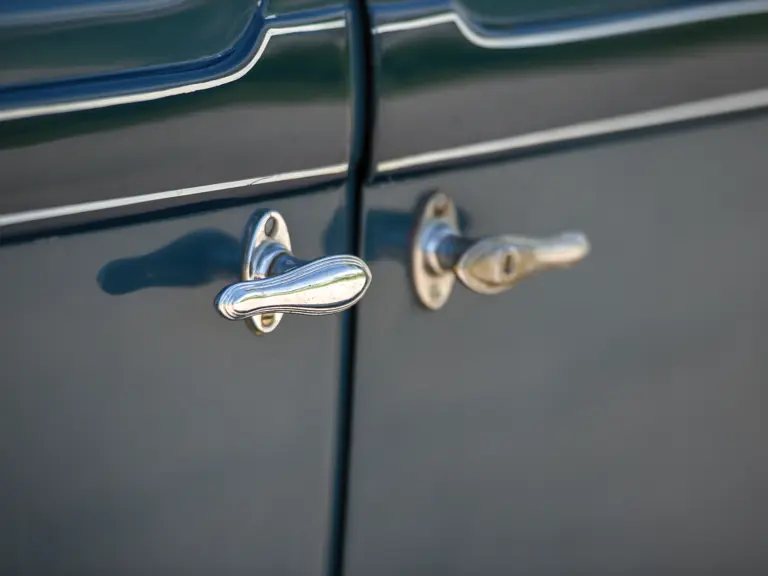
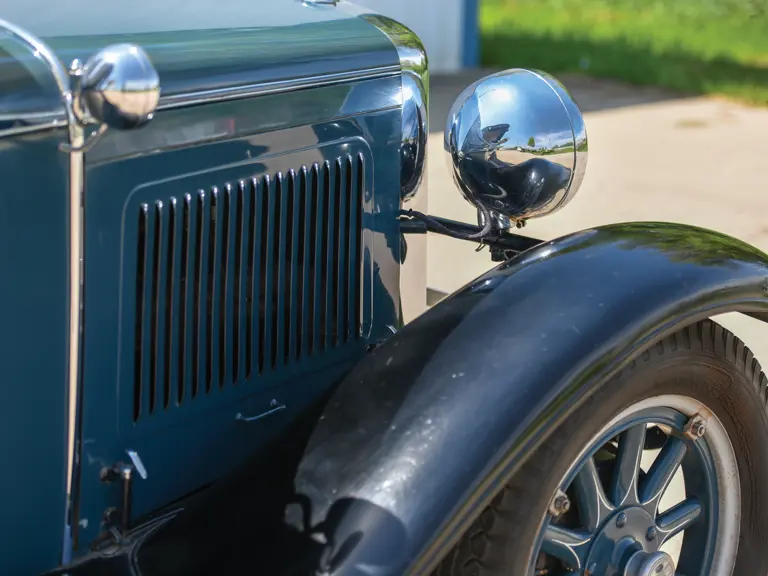
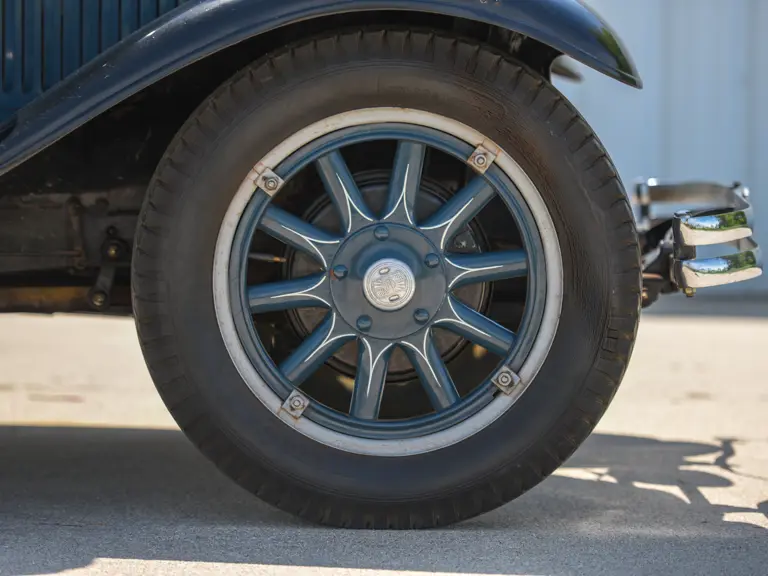
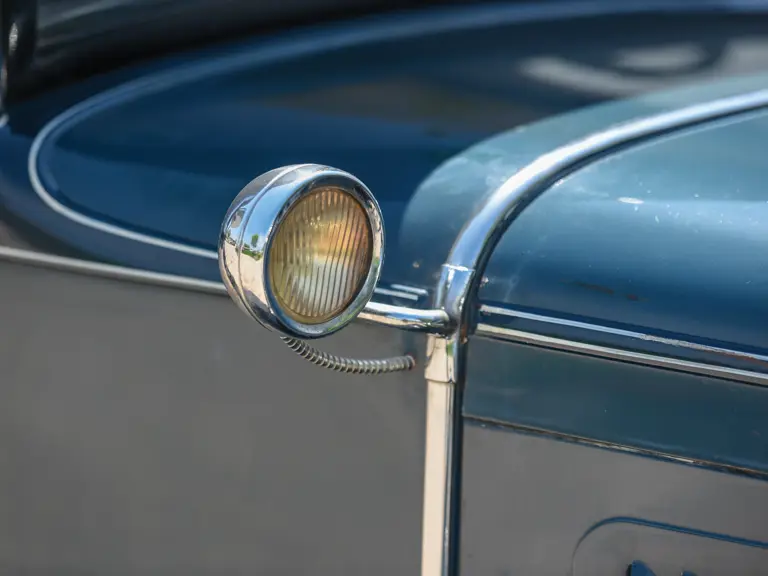
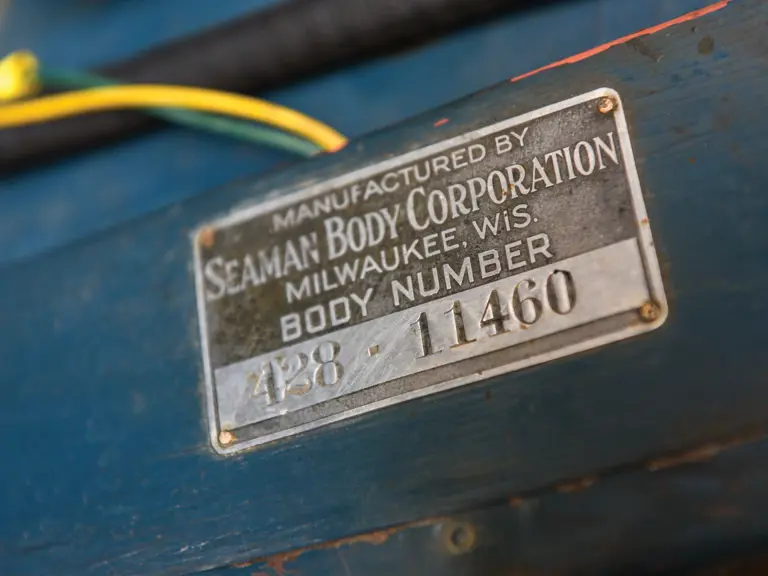
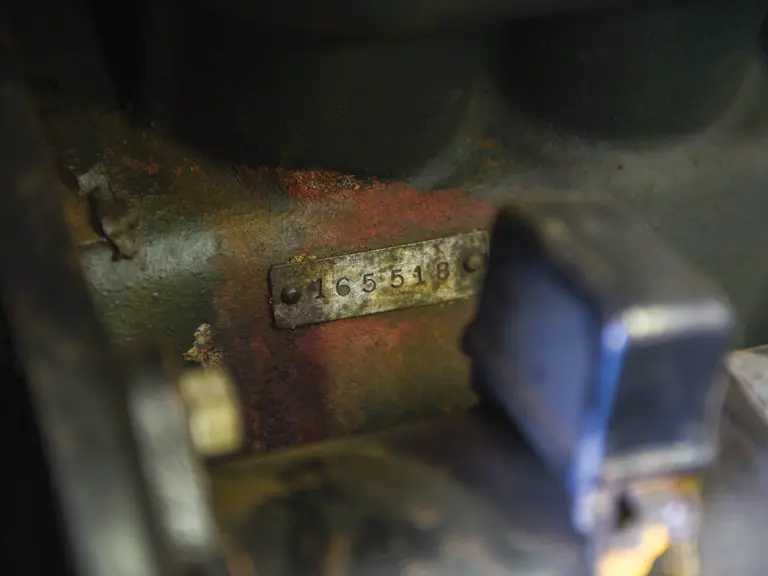
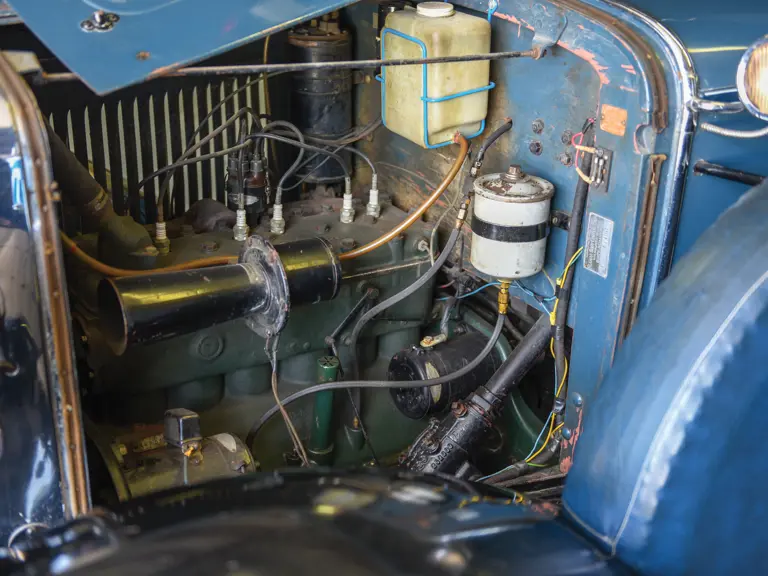
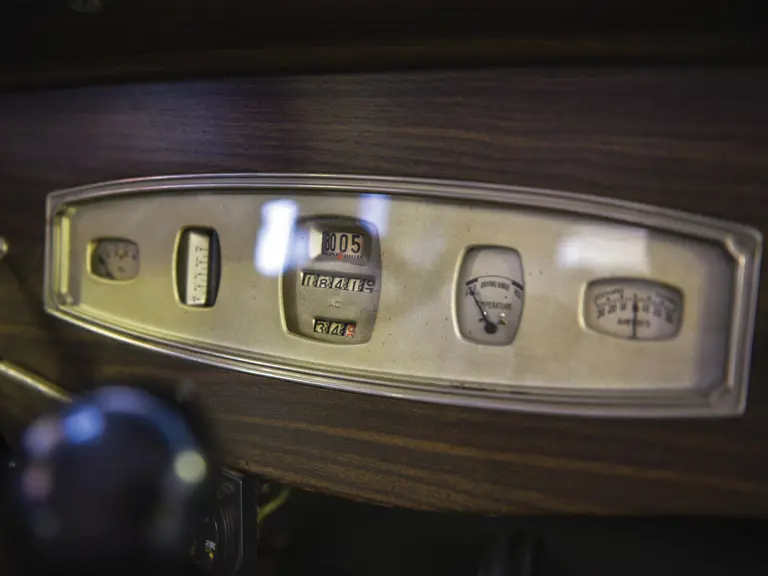
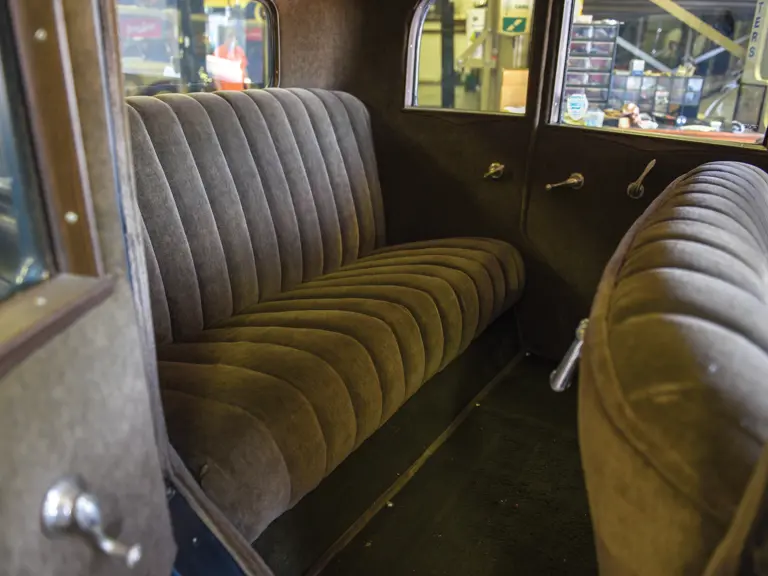
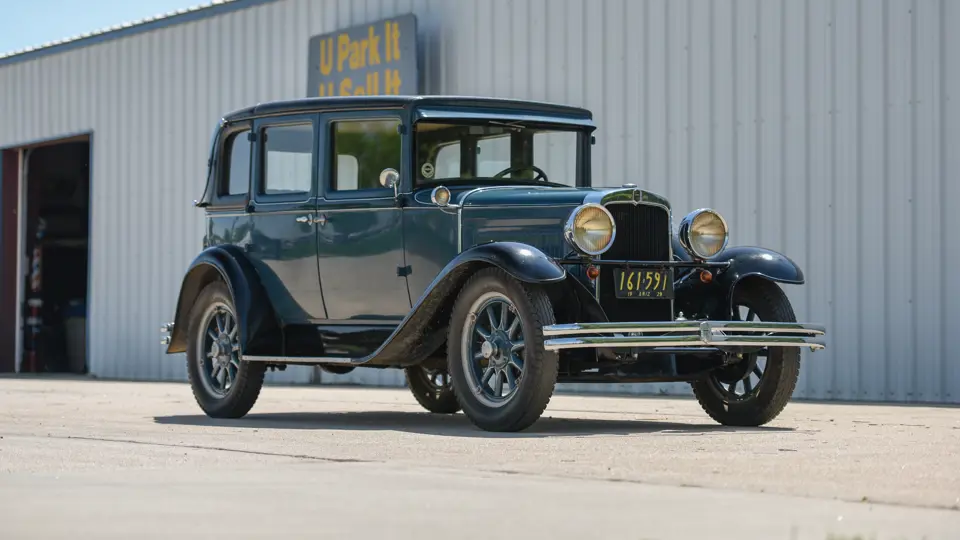
 | Hershey, Pennsylvania
| Hershey, Pennsylvania
